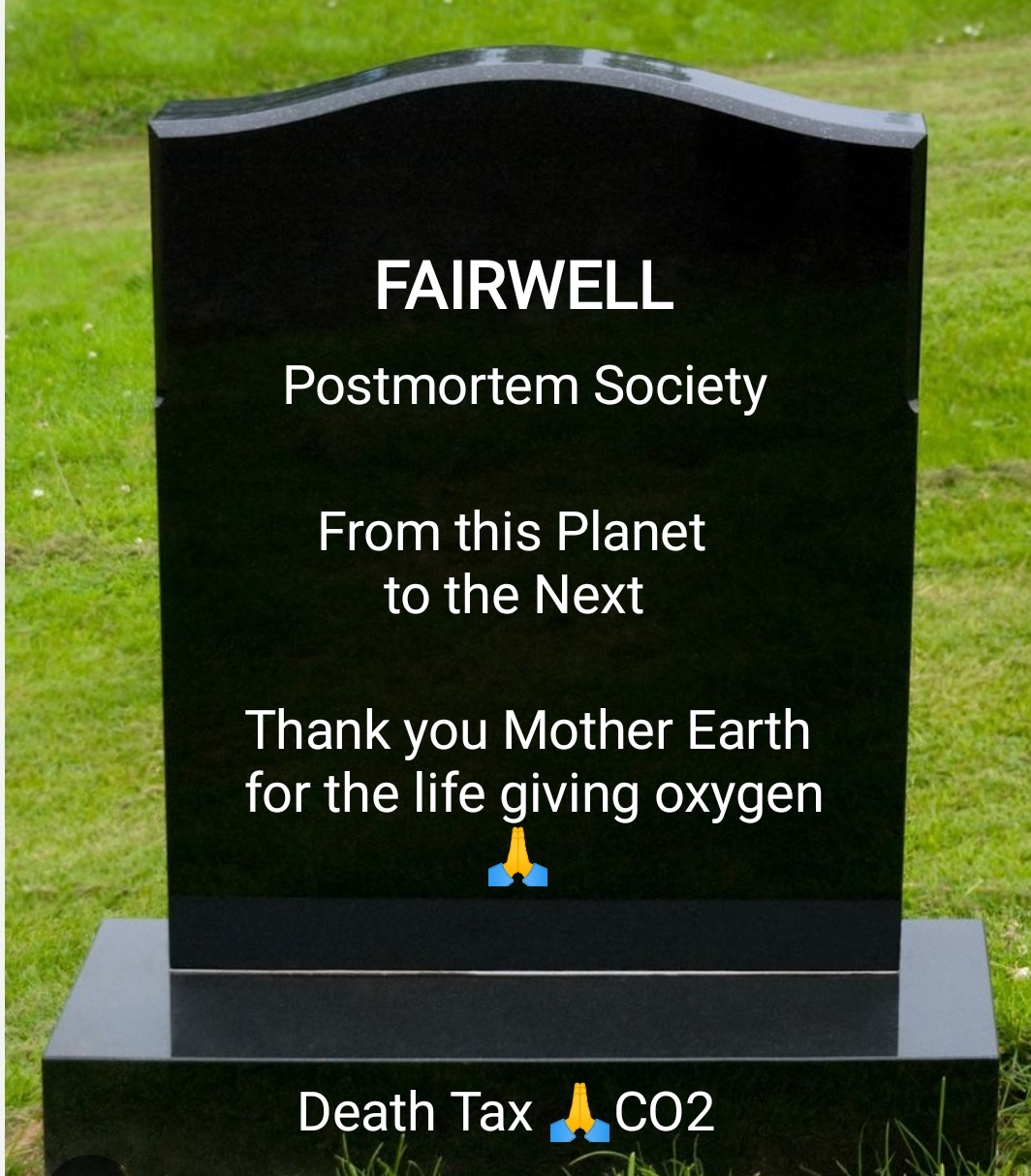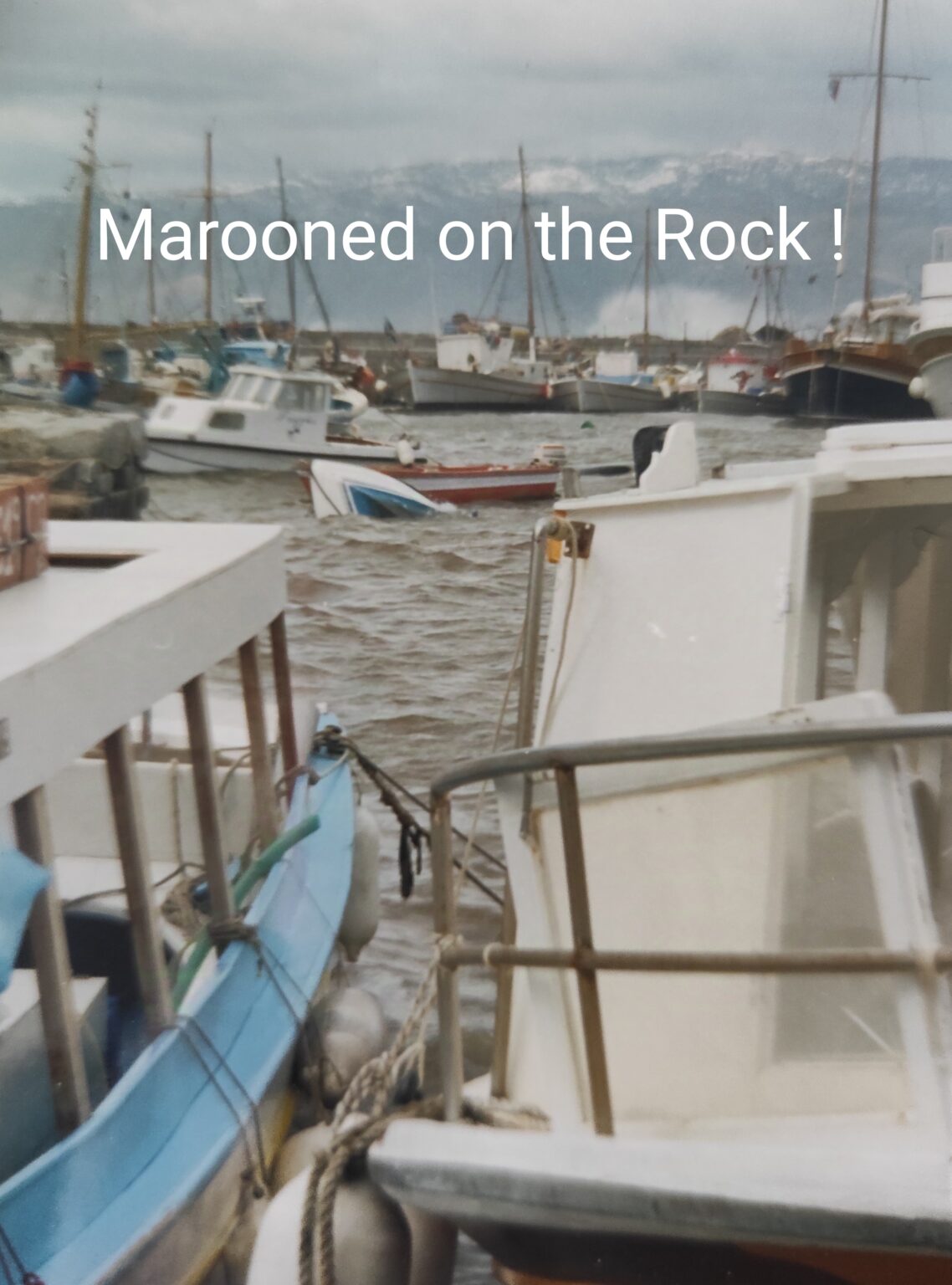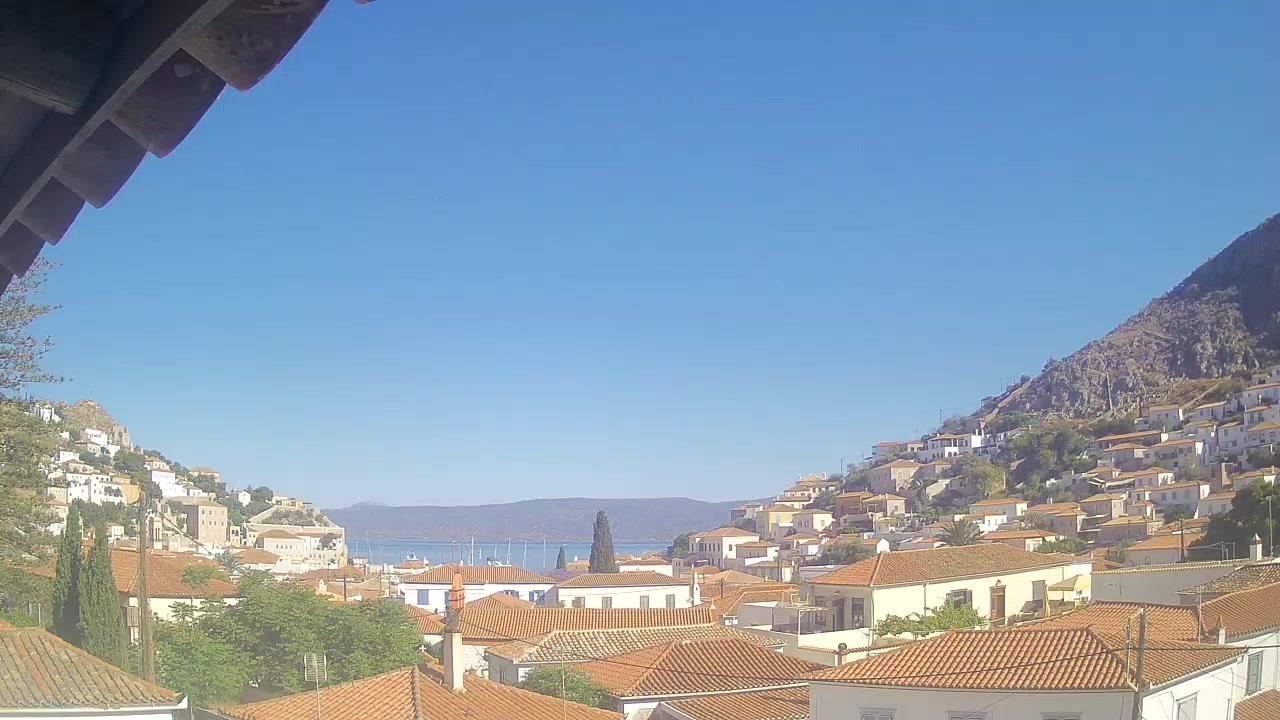Letter to the editor

One longtime resident’s response to Castello in Kamini in the Athens News
The Fourth World?
Inmates of the Rock have, on occasion, frustrated with bureaucratic delays and lack of amenities, been overheard to call our island, in jest, the “fourth world.”

But here’s a thought: even in Uganda, plastic bags have been outlawed. In fact, someone caught selling plastic bags could face a US$20,000 fine. Imagine trying to enforce that law here!
Some countries, in an effort to encourage reduced plastic usage, ask consumers to pay for shopping bags. Others have banned plastic bags altogether and use only paper containers, whereas shoppers in some societies have become accustomed taking their own carriers when visiting supermarkets.
Apart from toxic waste, plastic is probably one of the most resilient scourges of our environment, considering that this skoopethia (rubbish) takes approximately two thousand years to decompose.
Whilst our ecofriendly little island’s environmental consciousness has improved in recent years, we still have a long way to go when it comes to recycling anything, never mind coming up with ideas for reducing our use of plastic.
Plastic shopping bags are given out for even the smallest purchases, and they are so prolifically used that they find their way all over the countryside. Witness the lost bags waving from fences or trapped in tree branches along our otherwise pristine coastal paths.
There may be no immediate way to solve this particular form of pollution, but there are some simple ways in which we can work to limit this problem:
- Reuse your bags: take them with you when you go shopping. The shop owners appreciate this (as it saves them the expense of dishing out new ones), and bags can be used several times over. Better yet, take your own cloth bag with you to the shops: they hold more and are easier to carry anyway.
- If one were to carry an extra plastic bag on trips to and from town, it might serve as a useful receptacle for the ubiquitous ice cream and candy bar wrappers and discarded beverage containers littering our streets (usually within sight, if not tossing distance, of a Demos bin).
- This may seem a little alien to some, but in other parts of the world, dog owners use plastic bags, glovelike, to pick up doggie-doo. Indeed, many countries will fine pooch owners if they don’t scoop up said poop. Many of us let our dogs run around unaccompanied, meaning we aren’t there when they make their deposits. Having a bag handy on trips to and from home, we can, however, pick up any such unsightly piles in the vicinities in which our dogs roam. There’s usually a Demos bin nearby, obviating the need to carry the package with us for long.
- Use the bags as rubbish-bin liners instead of buying more plastic bags to collect waste.
Of course, it would be ridiculous to suggest that no one ever take another plastic bag home from a shop or that everyone carry them around picking up trash and poop all day long. As with conserving energy and water, however, small changes in habit can make a noticable difference.
What Is a Carbon Footprint?
How ’bout a Donkey Print?

Hydra’s donkeyprint
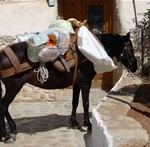 On Hydra, we pride ourselves that we are amongst the world’s leaders in the fight against global warming just by living here. Neon signs are banned. We don’t catch buses, drive cars, or even have the ability to commute by moped if we wish. For anything heavier than a shopping bag, one requires a donkey for transport, and in extreme cases for long distances, a water taxi, though this is hardly the norm. Even bicycles are banned (except for those under the age of 14, in which case, the vehicle is considered a toy).
On Hydra, we pride ourselves that we are amongst the world’s leaders in the fight against global warming just by living here. Neon signs are banned. We don’t catch buses, drive cars, or even have the ability to commute by moped if we wish. For anything heavier than a shopping bag, one requires a donkey for transport, and in extreme cases for long distances, a water taxi, though this is hardly the norm. Even bicycles are banned (except for those under the age of 14, in which case, the vehicle is considered a toy).
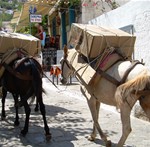 Nor in fact does our terrain merit anything more than burden-baring four-footed friends, given that Hydra is basically a rock with few level paths (try riding your bike up and down cobblestone steps). As one of the last bastions of unmotorized transportation so close to a major European capitol, Hydriotes can pride themselves on being pioneers of an old technology in the 21st century: foot travel and expedited delivery by donkey.
Nor in fact does our terrain merit anything more than burden-baring four-footed friends, given that Hydra is basically a rock with few level paths (try riding your bike up and down cobblestone steps). As one of the last bastions of unmotorized transportation so close to a major European capitol, Hydriotes can pride themselves on being pioneers of an old technology in the 21st century: foot travel and expedited delivery by donkey.
Hydra’s footprint
However, it would be too easy to rest on our laurels and assume we are therefore ahead of the global warming game. There are new and equally treacherous avenues along which even us c-footprint-light types can misstep. Air-conditioning, washing machines, the occasional trip by hydrafoil, and other new technowizardry, especially if used without due regard to energy use, all contribute to an increased footprint.
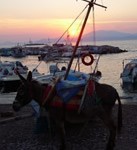 Take simply leaving lights on. We are not just talking about home owners’ leaving their garden lights on all night, but about the illumination of Hydra in general. Some back streets of Kamini and upper Hydra have brilliant new spotlights a-shining until gone dawn. There are even blueprints to pave and light the road to Vlichos our sources tell us, which will mean no more donkey prints along what is now a pristine footpath.
Take simply leaving lights on. We are not just talking about home owners’ leaving their garden lights on all night, but about the illumination of Hydra in general. Some back streets of Kamini and upper Hydra have brilliant new spotlights a-shining until gone dawn. There are even blueprints to pave and light the road to Vlichos our sources tell us, which will mean no more donkey prints along what is now a pristine footpath.
A rhubarb and debate have already erupted, making this an issue with no simple solution. “All those in favor of a yaya (grandmother) not falling down some steps in the dark, say aye,” gets a majority vote. “All those who oppose having their quiet, simple village night sky and luminous tranquility invaded, say aye,” gets the taxpayer vote. It’s a political standoff.
Statistics (read rumors) indicate that most are in favor of the first proposal, and yet home owners are dead against having an all-night spotlight illuminating their backyards, bedrooms, and terraces. This could involve years of legal wrangling.
Going lighter?
So, why not try something radical, something we are sure could be implemented by simply asking the relevant house owner who is in proximity to a newly proposed street light to sponsor a motion detector. At approximately 30 euros apiece, not only would they save the island a fortune in electricity (even with the low-energy lamps currently installed), but they would lead the way in maintaining our energy-friendly environment.
And there would be extra savings on top. There have been recorded instances of newish municipal lamps succumbing to accident sooner than their extra-long-life projections. Our lower-energy lamps might last longer if they only popped on when a person was within range, which would obviously translate into less “damage-control” expense for the Demos.
